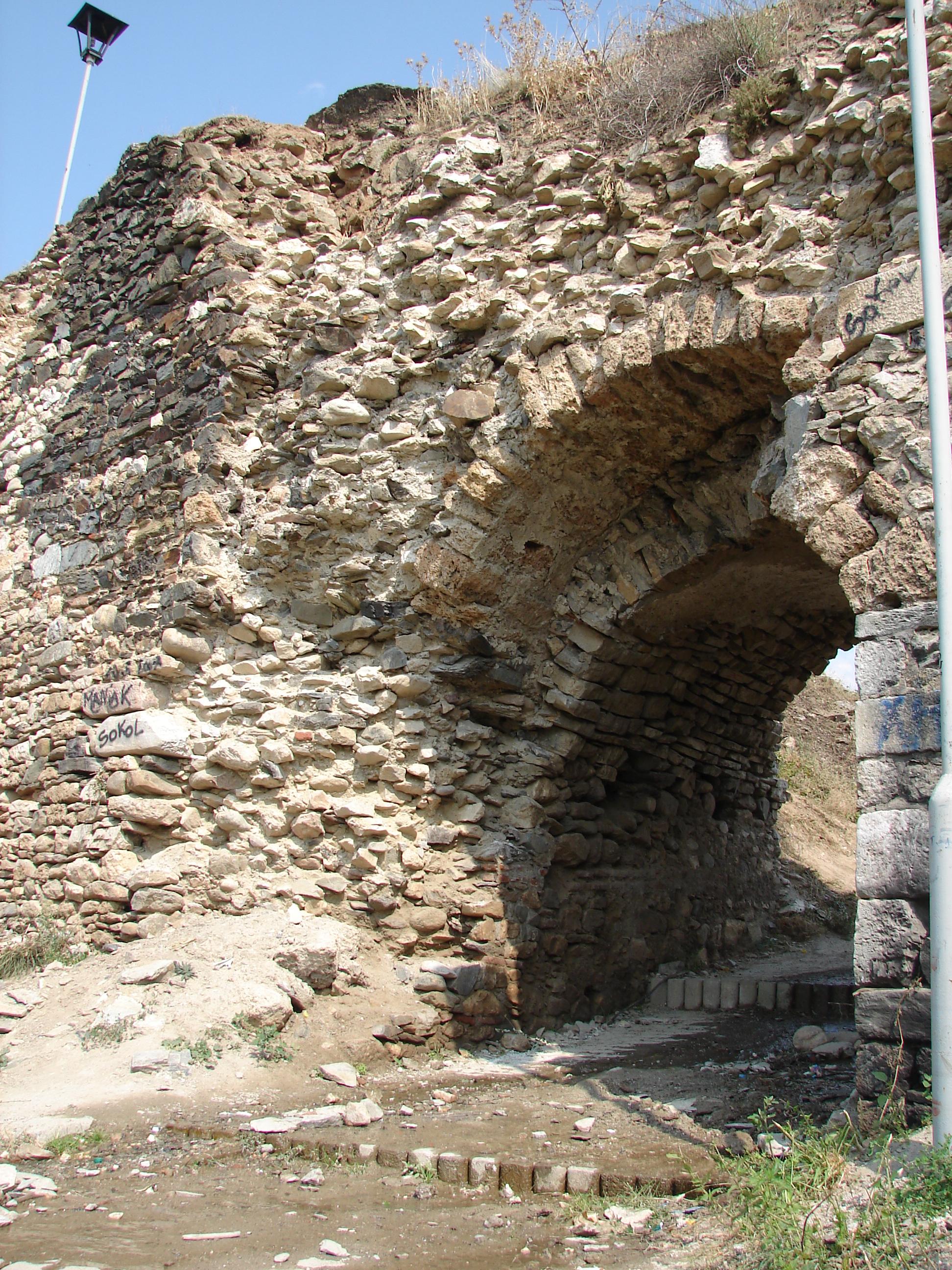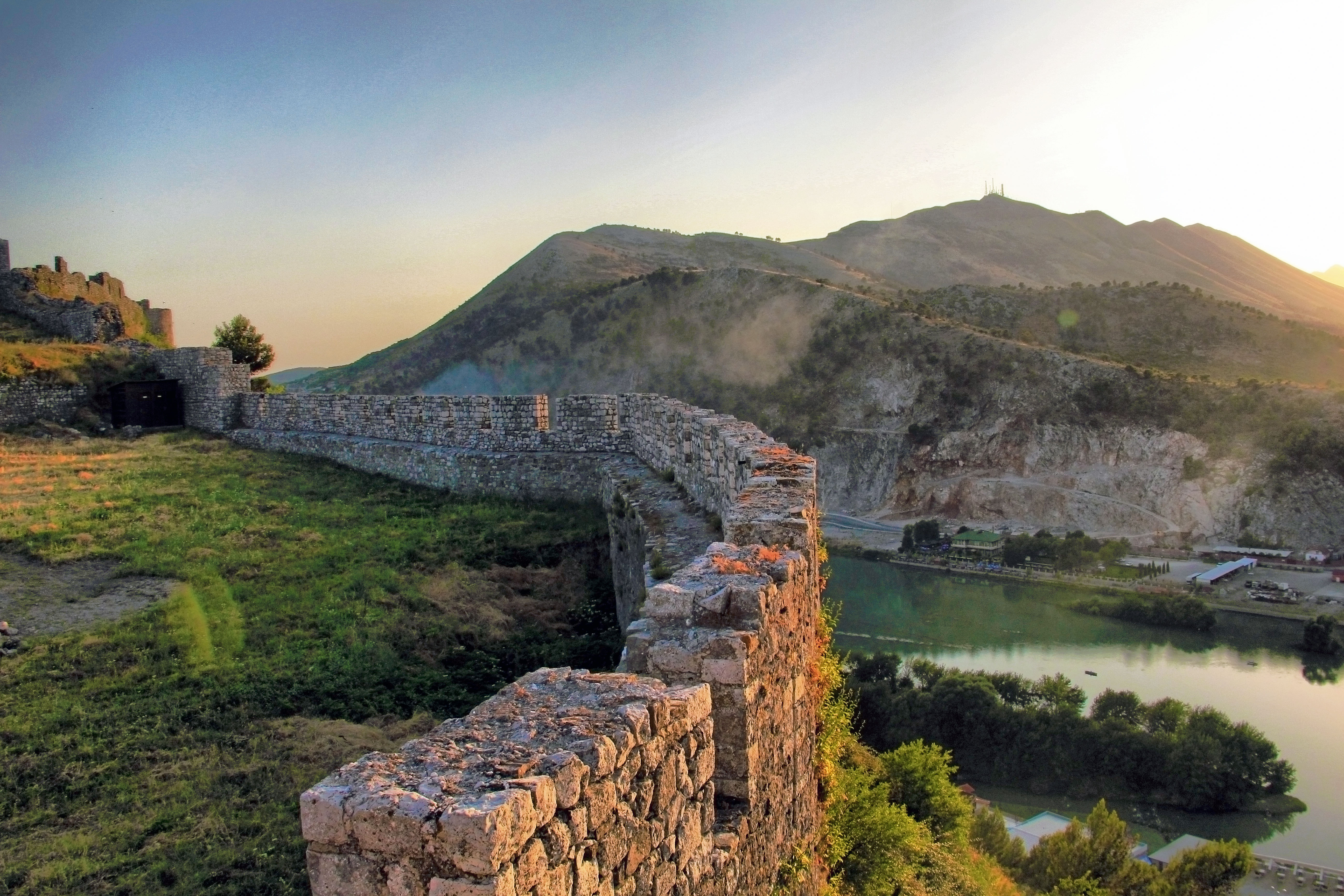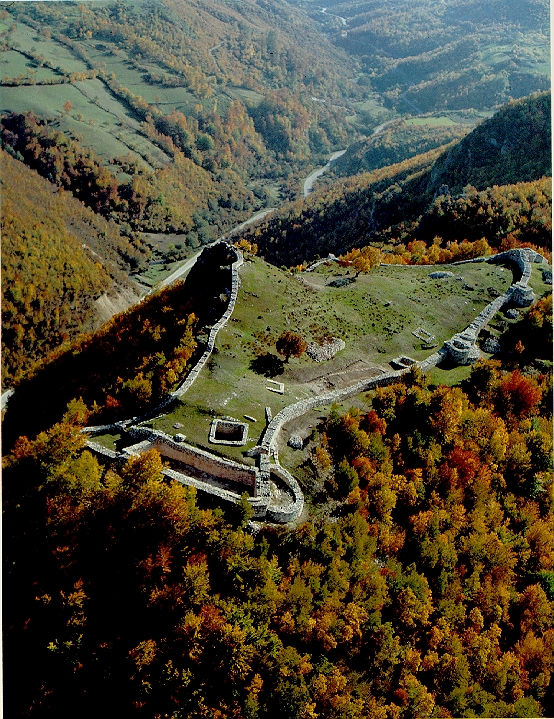|
Fall Of The Serbian Empire
The fall of the Serbian Empire was a decades-long process in the late 14th century. Following the death of the childless Emperor of the Serbs, Emperor Stefan Uroš V in 1371, the Serbian Empire was left without an heir and the magnates, ''velikaši'', obtained the rule of its provinces and districts (in so-called feudal fragmentation), continuing their offices as independent with titles such as ''gospodin'', and ''Despot (court title), despot'', given to them during the Empire. This period is known as the dissolution or the beginning of the fall of the Serbian Empire. Between 1365 and 1371, Vukašin of Serbia, King Vukašin was the co-ruler of Emperor Uroš, ruling the southern half, thus the Empire may be viewed as a ''de facto'' diarchy. Before 1371, the Medieval Serbian nobility, nobility were either directly subordinate to Emperor Uroš or to Vukašin. Vukašin died in the Battle of Maritsa (1371) against the invading Ottoman Empire, and southern Serbian provinces became nomin ... [...More Info...] [...Related Items...] OR: [Wikipedia] [Google] [Baidu] |
Serbian Empire
The Serbian Empire ( sr-Cyrl-Latn, Српско царство, Srpsko carstvo, separator=" / ", ) was a medieval Serbian state that emerged from the Kingdom of Serbia. It was established in 1346 by Dušan the Mighty, who significantly expanded the state. During Dušan's rule, Serbia was one of the most powerful European states and, the most powerful in Southeast Europe. It was an Eastern Orthodox multi-ethnic and multi-lingual empire that stretched from the Danube in the north to the Gulf of Corinth in the south, with its capital in Skopje. Dušan also promoted the Serbian Archbishopric to the Serbian Patriarchate. In the Serbian Empire, the region of Kosovo was the most prosperous and densely populated area, serving as a key political, religious, and cultural center. Dušan's son and successor, Uroš the Weak, struggled to maintain his father's vast empire, gradually losing much of the conquered territory - hence his epithet. The Serbian Empire effectively ended wit ... [...More Info...] [...Related Items...] OR: [Wikipedia] [Google] [Baidu] |
Serbdom
Serbian nationalism asserts that Serbs are a nation and promotes the cultural and political unity of Serbs. It is an ethnic nationalism, originally arising in the context of the general rise of nationalism in the Balkans under Ottoman rule, under the influence of Serbian linguist Vuk Stefanović Karadžić and Serbian statesman Ilija Garašanin. Serbian nationalism was an important factor during the Balkan Wars which contributed to the decline of the Ottoman Empire, during and after World War I when it contributed to the dissolution of the Austro-Hungarian Empire, and again during the breakup of Yugoslavia and the Yugoslav Wars of the 1990s. After 1878, Serbian nationalists merged their goals with those of Yugoslavists, and emulated the Piedmont's leading role in the ''Risorgimento'' of Italy, by claiming that Serbia sought not only to unite all Serbs in one state, but that Serbia intended to be a South Slavic Piedmont that would unite all South Slavs in one state known as Yu ... [...More Info...] [...Related Items...] OR: [Wikipedia] [Google] [Baidu] |
Zeta (state)
This is a list of princes of Zeta. Background After Constantin Bodin's death, fighting among his potential successors weakened the state of Duklja and the region succumbed to Rascia's reign between 1183 and 1186. In 1190, Grand Župan of Rascia Stefan Nemanja's son, Vukan II, asserted his right to the Dukljan crown. In 1219, the regent of Zeta and King Vukan's oldest son, Đorđe Nemanjić, became king of Duklja/Zeta. He was succeeded by his second oldest son, Uroš I, who built the 'Uspenje Bogorodice' monastery in Morača. Between 1276 and 1309, Zeta was ruled by Queen Jelena, widow of Serbia's King Uroš I. She restored around 50 monasteries in the region—most notably Saint Srđ and Vakh on the Bojana River. The name ''Crna Gora'' (Montenegro) was formally mentioned for the first time in 1296, in the charter of St. Nicholas' monastery in Vranjina. This charter was issued by the Serbian King Stefan Milutin Nemanjić, who was the youngest son of Uroš I and Hel ... [...More Info...] [...Related Items...] OR: [Wikipedia] [Google] [Baidu] |
Shkodër
Shkodër ( , ; sq-definite, Shkodra; historically known as Scodra or Scutari) is the List of cities and towns in Albania, fifth-most-populous city of Albania and the seat of Shkodër County and Shkodër Municipality. Shkodër has been List of oldest continuously inhabited cities, continuously inhabited since the Early Bronze Age ( 2250–2000 BC), and has roughly 2,200 years of recorded history. The city sprawls across the Plain of Mbishkodra between the southern part of Lake Skadar, Lake Shkodër and the foothills of the Albanian Alps on the banks of the Buna (Adriatic Sea), Buna, Drin (river), Drin and Kir (river), Kir rivers. Due to its proximity to the Adriatic Sea, Shkodër is affected by a seasonal Mediterranean climate with Continental climate, continental influences. An urban settlement called ''Skodra'' was founded by the Illyrians, Illyrian tribe of Labeatae in the 4th century BCE. It became the capital of the Illyrian kingdom under the Ardiaei and Labeatae and was one ... [...More Info...] [...Related Items...] OR: [Wikipedia] [Google] [Baidu] |
Kastoria
Kastoria (, ''Kastoriá'' ) is a city in northern Greece in the modern regions of Greece, region of Western Macedonia. It is the capital of Kastoria (regional unit), Kastoria regional unit, in the Geographic regions of Greece, geographic region of Macedonia (Greece), Macedonia. It is situated on a promontory on the western shore of Lake Orestiada, in a valley surrounded by limestone mountains. The town is known for its many Byzantine Empire, Byzantine churches, Byzantine architecture, Byzantine and Ottoman architecture, Ottoman-era domestic architecture, its lake and its fur clothing industry. Name In the 6th century, the historian Procopius wrote the name Kastoria was used for the lake. The first reference to the town of Kastoria is by historian John Skylitzes writing about the late 10th century. The toponym Kastoria means "place of beavers" and is derived from ''kastori'' (καστόρι), the Greek word for European beaver, beaver and an animal whose local habitat was along ... [...More Info...] [...Related Items...] OR: [Wikipedia] [Google] [Baidu] |
Despotate Of Epirus
The Despotate of Epirus () was one of the Greek Rump state, successor states of the Byzantine Empire established in the aftermath of the Fourth Crusade in 1204 by a branch of the Angelos dynasty. It claimed to be the legitimate successor of the Byzantine Empire during the subsequent struggle for Constantinople, along with the Empire of Nicaea and the Empire of Trebizond; its rulers briefly proclaiming themselves as Emperors in 1227–1242 (during which it is most often called the Empire of Thessalonica). The term "Despotate of Epirus" is, like "Byzantine Empire" itself, a modern historiographic convention and not a name in use at the time. The Despotate was centred on the region of Epirus, encompassing also Albania and the western portion of Greek Macedonia and also included Thessaly and western Greece as far south as Nafpaktos. Through a policy of aggressive expansion under Theodore Komnenos Doukas the Despotate of Epirus also briefly came to incorporate central Macedonia (regi ... [...More Info...] [...Related Items...] OR: [Wikipedia] [Google] [Baidu] |
Simeon Uroš
Simeon Uroš ( sr-Cyrl, Симеон Урош, ; 1326–1370), nicknamed Siniša (), was a self-proclaimed Emperor of Serbs and Greeks, from 1356 to 1370. He was son of Serbian King Stephen Uroš III and Byzantine Princess Maria Palaiologina. Initially, he was awarded the title of despot in 1346, and appointed governor of southern Epirus and Acarnania in 1347 by his half-brother, Serbian Emperor Stephen Dušan. After Dušan's death in 1355, the Serbian throne passed to Dušan's son Stephen Uroš V, but despot Simeon decided to seize the opportunity in order to impose himself as co-ruler and lord of all southern provinces of the Serbian Empire. That led him to conflict with his nephew in 1356, when Simeon started to expand his control in southern regions of the Empire, trying to take Thessaly and Macedonia. He proclaimed himself ''Emperor of the Serbs and Greeks'', creating a separate state, centered in regions of Thessaly and Epirus, where he ruled until his death in 1370. ... [...More Info...] [...Related Items...] OR: [Wikipedia] [Google] [Baidu] |
Emperor Dušan
The word ''emperor'' (from , via ) can mean the male ruler of an empire. ''Empress'', the female equivalent, may indicate an emperor's wife (empress consort), mother/grandmother (empress dowager/grand empress dowager), or a woman who rules in her own right and name (empress regnant or ''suo jure''). Emperors are generally recognized to be of the highest monarchic honour and royal and noble ranks, rank, surpassing king. In Europe, the title of Emperor has been used since the Middle Ages, considered in those times equal or almost equal in dignity to that of Pope due to the latter's position as visible head of the Church and spiritual leader of the Catholic part of Western Europe. The emperor of Japan is the only currently List of current sovereign monarchs, reigning monarch whose title is translated into English as "Emperor". Both emperors and kings are monarchs or sovereigns, both emperor and empress are considered monarchical titles. In as much as there is a strict definitio ... [...More Info...] [...Related Items...] OR: [Wikipedia] [Google] [Baidu] |
Loza Nemanjica Decani C 2
Loza may refer to: Places *Loza, Álava, a village in the Basque Country, Spain *Loza, Bulgaria, a village in Gabrovo Province, Bulgaria *Loza (Plzeň-North District), a municipality and village in the Czech Republic *Łoza, a village in Sztum County, Poland *Łoża, a village in Człuchów County, Poland * Loza River, a river in northern Madagascar that crosses Antsohihy People *Loza (surname) *Loza Abera, Ethiopian footballer *Loza Maléombho Loza Maléombho is an Ivorian American fashion designer. She was raised between Abidjan, Côte d'Ivoire (West Africa) and Silver Spring, Maryland (US). At age 13 she found interest in fashion while designing for her mother her aunts and her own ..., Ivorian American fashion designer See also {{disambiguation, geo ... [...More Info...] [...Related Items...] OR: [Wikipedia] [Google] [Baidu] |
Empire Of The Romans And Serbs En
An empire is a political unit made up of several territories, military outposts, and peoples, "usually created by conquest, and divided between a dominant center and subordinate peripheries". The center of the empire (sometimes referred to as the metropole) has political control over the peripheries. Within an empire, different populations may have different sets of rights and may be governed differently. The word "empire" derives from the Roman concept of . Narrowly defined, an empire is a sovereign state whose head of state uses the title of "emperor" or "empress"; but not all states with aggregate territory under the rule of supreme authorities are called "empires" or are ruled by an emperor; nor have all self-described empires been accepted as such by contemporaries and historians (the Central African Empire of 1976 to 1979, and some Anglo-Saxon kingdoms in early England being examples). There have been "ancient and modern, centralized and decentralized, ultra-bruta ... [...More Info...] [...Related Items...] OR: [Wikipedia] [Google] [Baidu] |
Serbia In The Middle Ages
The medieval period in the history of Serbia began in the 6th century with the Slavic migrations to Southeastern Europe, and lasted until the Ottoman Serbia, Ottoman conquest of Serbian lands in the second half of the 15th century. The period is also extended to 1537, when Pavle Bakić, the last titular Despot of Serbia in Hungarian exile, fell in the Battle of Gorjani. At the time of settling, Serbs were already transitioning from a tribal community into a feudal society. The first Serbian state with established political identity was founded by prince Vlastimir in the mid-9th century. It was followed by other Serbian proto states, unstable due to the constant clashes with the First Bulgarian Empire, Bulgarians, Principality of Hungary, Hungarians and Byzantine Empire, Byzantines, and by the conflict between Catholic Church, Rome and Ecumenical Patriarchate of Constantinople, Constantinople regarding the Christianization of Serbs, Christianization with the Byzantines getting th ... [...More Info...] [...Related Items...] OR: [Wikipedia] [Google] [Baidu] |
Serbian Despotate
The Serbian Despotate () was a medieval Serbian state in the first half of the 15th century. Although the Battle of Kosovo in 1389 is mistakenly considered the end of medieval Serbia, the Despotate, a successor of the Serbian Empire and Moravian Serbia, lasted for another sixty years, experiencing a cultural, economic, and political renaissance, especially during the reign of Despot Stefan Lazarević. After the death of Despot Đurađ Branković in 1456, the Despotate continued to exist for another three years before it finally fell under Ottoman rule in 1459. After 1459, political traditions of the Serbian Despotate continued to exist in exile, in the medieval Kingdom of Hungary, with several titular despots of Serbia, who were appointed by kings of Hungary. The last titular Despot of Serbia was Pavle Bakić, who fell in the Battle of Gorjani in 1537. History Origins After Prince Lazar Hrebeljanović was killed in the Battle of Kosovo on June 28, 1389, his young son Stefan ... [...More Info...] [...Related Items...] OR: [Wikipedia] [Google] [Baidu] |









